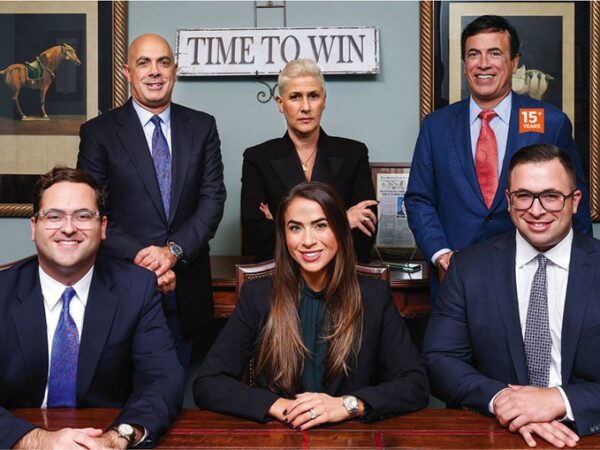Inside the Third Culture Bakery Lawsuit: A Mochi Muffin Controversy

third culture bakery lawsuit
The Trademark Tangle
The Bay Area’s Third Culture Bakery, widely known for its delicious baked goods, recently found itself in hot water over a trademark controversy surrounding the term “mochi muffin.” The seemingly straightforward branding decision soon spiraled into a full-blown public relations challenge. The trademarking of the word ‘mochi muffin’ had unintended consequences, leading to tensions with fans and fellow bakers alike.
From Popular Delicacy to Legal Drama
Mochi muffins, delicious treats that have captured the taste buds of many, are a fusion of traditional and modern muffins. However, when Third Culture Bakery decided to trademark the term, it inadvertently stirred a pot of contention. Many believed that “mochi muffin” was a generic term, and for one brand to claim exclusive rights over it was viewed as overreach.
The Turning Point
Things took a twist when The Chronicle, a reputable publication, inquired about the status of the ‘mochi muffin’ trademark. The same day, a letter surfaced on the U.S. Patent and Trademark Office (USPTO) website, indicating Third Culture Bakery’s decision to relinquish the contentious trademark. This letter, penned by the co-owners of the bakery, marked a significant development in the ongoing saga.
The Response from Third Culture Bakery
The bakery took to social media to clear the air and clarify their stance. A statement on their Instagram highlighted the complexities of the legal processes involved. The bakery emphasized the time-consuming “legwork” and the extensive “back and forth” that went into making the decision. Despite surrendering the trademark, relics of the term could still be spotted on Third Culture’s official website as of Monday.
Reflection and Forward Motion
Such disputes highlight the intricacies of trademark law and the importance of gauging public sentiment. As businesses, especially those in the food and hospitality industry, tread the thin line between branding and cultural sensitivity, it’s crucial to strike the right balance. While Third Culture Bakery’s intent might not have been malicious, the episode offers a lesson for brands everywhere.
Companies must remain vigilant in today’s digital age, where news travels fast, and reputations are built and shattered online. The ‘mochi muffin’ controversy serves as a reminder of the power of public perception and the importance of swift, transparent, and heartfelt communication.
Closing Thoughts
The tale of the Third Culture Bakery lawsuit showcases the intersection of business decisions, cultural sensitivity, and legal processes. It’s a testament to the age-old saying: “The road to hell is paved with good intentions.” However, with open dialogue and genuine efforts to understand public sentiment, businesses can navigate these tricky waters gracefully and with integrity. As for the fans of mochi muffins, they can continue to relish their favorite treat without the shadow of a legal battle looming overhead.
FAQs
Q: What was the controversy around Third Culture Bakery?
A: The main issue revolved around Third Culture Bakery’s decision to trademark “mochi muffin.” Many considered this term generic and believed that no single brand should have exclusive rights over it.
Q: Why did the bakery choose to trademark ‘mochi muffin’?
A: While specific reasons behind the bakery’s decision are not publicly detailed, businesses often trademark terms to protect their brand identity and unique products. However, in this case, the public deemed the time too generic, leading to controversy.
Q: How did the public react to the trademark decision?
A: The decision was met with backlash, especially from fans and other bakers. They felt that “mochi muffin” was a widely recognized term and shouldn’t be restricted to just one brand.
Q: Did the bakery respond to the controversy?
A: Yes, following inquiries from The Chronicle about the trademark status, the bakery relinquished its rights to the term “mochi muffin.” They also released a statement on Instagram, explaining the complexities of the legal processes they had to navigate.
Q: Why did Third Culture Bakery eventually give up the trademark?
A: In light of the public sentiment and after understanding the broader implications, Third Culture Bakery surrendered the trademark. They expressed this decision in a letter to the U.S. Patent and Trademark Office (USPTO).
Q: Are there any lingering effects of the controversy on the bakery’s branding or reputation?
A: While the bakery took steps to address the issue transparently, such incidents often serve as lessons for brands. The real impact depends on how the brand engages with its audience and makes future branding decisions.
Q: What can other businesses learn from the Third Culture Bakery lawsuit?
A: The incident underscores the importance of understanding public sentiment, cultural sensitivity, and the intricacies of trademark laws before making branding decisions. It also emphasizes the need for open communication with the public in case of controversies.
Q: Will this incident impact the bakery’s operations or offerings?
A: The bakery’s operations or offerings are unlikely to be directly affected. However, they might exercise more caution in future branding or trademarking decisions.










